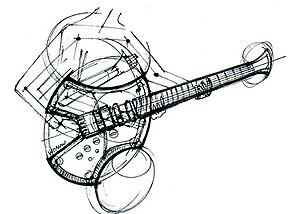INVENTORS 1st question, do you have the patent? An idea or set of ideas that are owned by an individual or group is called the umbrella term “intellectual property,” commonly referred to as IP claims or patent rights. Patented or IP includes several legal concepts which may apply to any given innovation, product, process, mechanical software or chemical, biological technology or creative or process. These IP rights include: utility and design patents, business models, trademarks, copyrights, and trade secrets. IP includes various legal entitlements which attach to certain names, written and recorded media, inventions and other “creations of intellect”.
Patents provide the claimed rights to exclude others from making, using, offering for sell, licensing, or assigning, exporting or importing into the country. Intellectual property laws and enforcement vary widely from country to country. Patents are considered public domain. See the www.uspto.gov
A general overview of IP protection. Utility patents protect inventions whose innovation includes patented mechanical or functional feature drawings and claims. Design patents protection is in the decorative graphic or ornamental aspect of the product. Trademarks include words, symbols, or other devices that identify and distinguish the source of goods or services used in the market. Copyrights protect works of authorship such as books, paintings, maps, musical lyrics, compositions, and performances. In addition, copyright law can be used to protect software, computer displays, and original aspects of non-functional articles.
A trade secret can be considered is a private formula, practice, process, design, instrument, pattern, or compilation of information used by a business to obtain an advantage over competitors or customers. Trade secret status can avoid the public patent process disclosure. To be considered a legal trade secret, reasonable efforts to maintain its secrecy of the information must be enforced.
A Non-Disclosure or Confidentially Agreement is a legal agreement between the owner of IP and a disclosing partner to gain access to the IP, in which both parties agree that all ideas and thoughts related to the IP are to remain confidential and excludes future business or commercial use for a defined period.
The term of a U.S. patent is 20 years from the filing date defined as public domain. The original idea for a new invention must be documented (drawn up and or make the claims), signed and witnessed. A good practice is email, fax or send the information to your Patent Attorney. Maximize your protection, knowing applicable and appropriate laws practices . Always recommended consider a U.S. registered patent attorney – lawyer that specializes in intellectual property and your business / corporate philosophy regarding IP protection rights.
Expired patents sometimes create new opportunities. Invention has always been Great! Great inventors and investors use an Industrial Designer. More important 1st to the patent office wins!!! We draw it up and Prototype and get you Patented up! WhiteLight Design #inventionpatent #newproductidea

